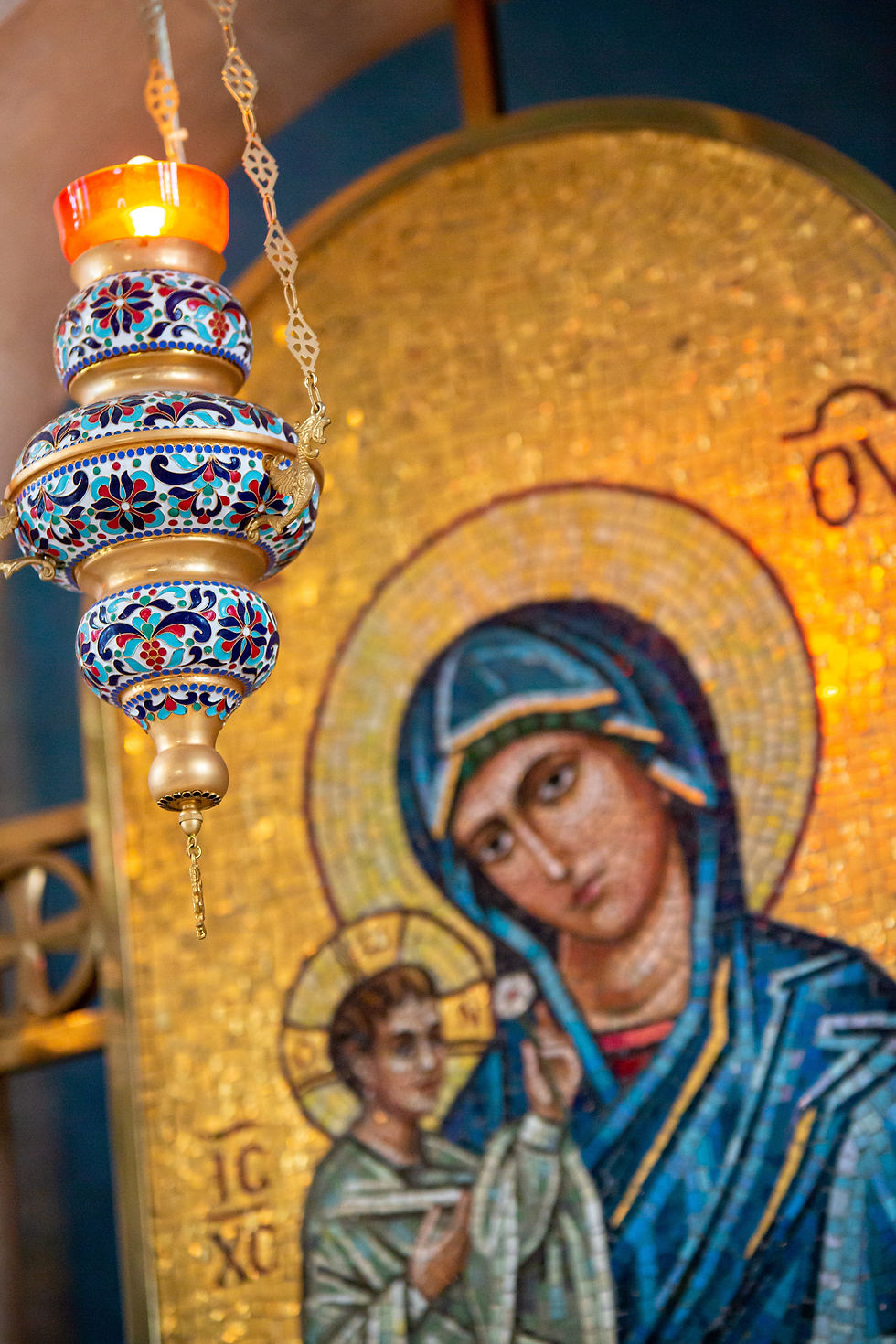Mary's No
- Jennifer Delvaux

- Dec 22, 2020
- 3 min read
Today’s Readings - Including the Gospel referenced below.
Mary is frequently portrayed as docile, head bowed, the very picture of passive, receptive, ideal femininity. If Mary is the pattern card we are asked to follow, as many stipulate, let’s make sure we have a full picture and not a caricature.
Mary questioned Gabriel, the Messenger of God. She pushed for answers when something did not sit quite right with her. Yes, she agreed, she said, “Let it be done to me according to God’s word.” Her receptivity to God’s will cannot be cast so as to remove her agency. We must not dare to minimize that – with that yes came the danger of punishment, perhaps even stoning. Her yes required an extraordinary strength of character and will.
Mary then goes cross country to see her cousin Elizabeth. There, the two women meet and something extraordinary happens. In the space and validation they create for one another – they become prophets and revolutionaries. Elizabeth becomes the first to speak the title, Lord, over Jesus – the first in the Gospel of Luke. She knows this without any words from any earthly creature, it is the work of the Spirit filling her. Elizabeth blesses Mary for her faith.
In this space then, Mary utters the words of the Magnificat, Luke 1:46-56, the words of today’s Gospel. In the space created and supported by another woman, she proclaims words that speak of the downfall of the proud and the feeding of the hungry. It is the song of revolution, a salvation that overturns injustices. It is the cry of a woman who could say, “yes,” and still shout a resounding, “No!” Her no is to the injustices humans inflict on one another. Her no is to the oppression of people, especially by those with wealth and power. Her no is to the status quo, and a shout heralding the inbreaking of God's kingdom.

A theologian I love to read, Ivone Gebara, calls the Magnificat a “war chant.” I am not surprised that this strong, prophetic chant gets glossed and whitewashed into a passive hymn. A war chant is terrifying. A war chant on the lips of the Mother of God? On the lips of a poor girl from a backwater town crying out for the poor to be fed and the mighty to be cast down? No, that is not a comfortable song. In today’s world I can only imagine if Mary stood in the street chanting this, shouting the words at a rally. What would she be called? What would her beliefs be labeled as?
Yet Mary, the Mother of God, empower by the relationship of mutuality with Elizabeth, proclaimed the cry that her son would preach. Mary’s Magnificat is a prayer we should embrace. To praise our God and to change the world so the poor are fed and proud are scattered. This is the war chant of Mary and the words of her son –
“The Spirit of the Lord is upon me,
because he has anointed me
to bring glad tidings to the poor.
He has sent me to proclaim liberty to captives
and recovery of sight to the blind,
to let the oppressed go free,
and to proclaim a year acceptable to the Lord.”
Luke 4:18-19
The Magnificat is Mary calling to us down the centuries and her son speaking anew to us. What are the words we will speak in reply? What are the actions we will take to bring God’s reign ever more into the world?






Comments